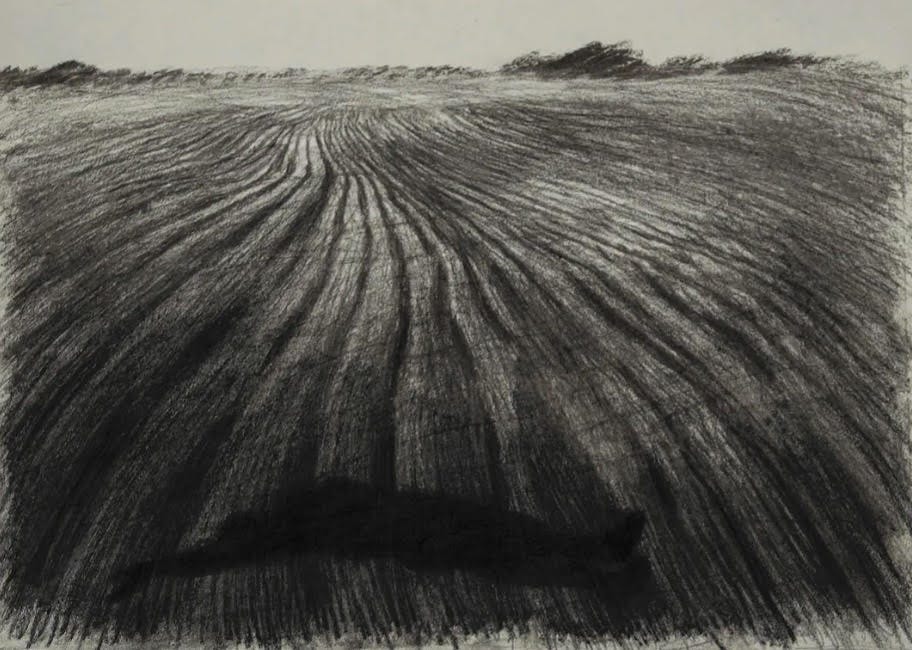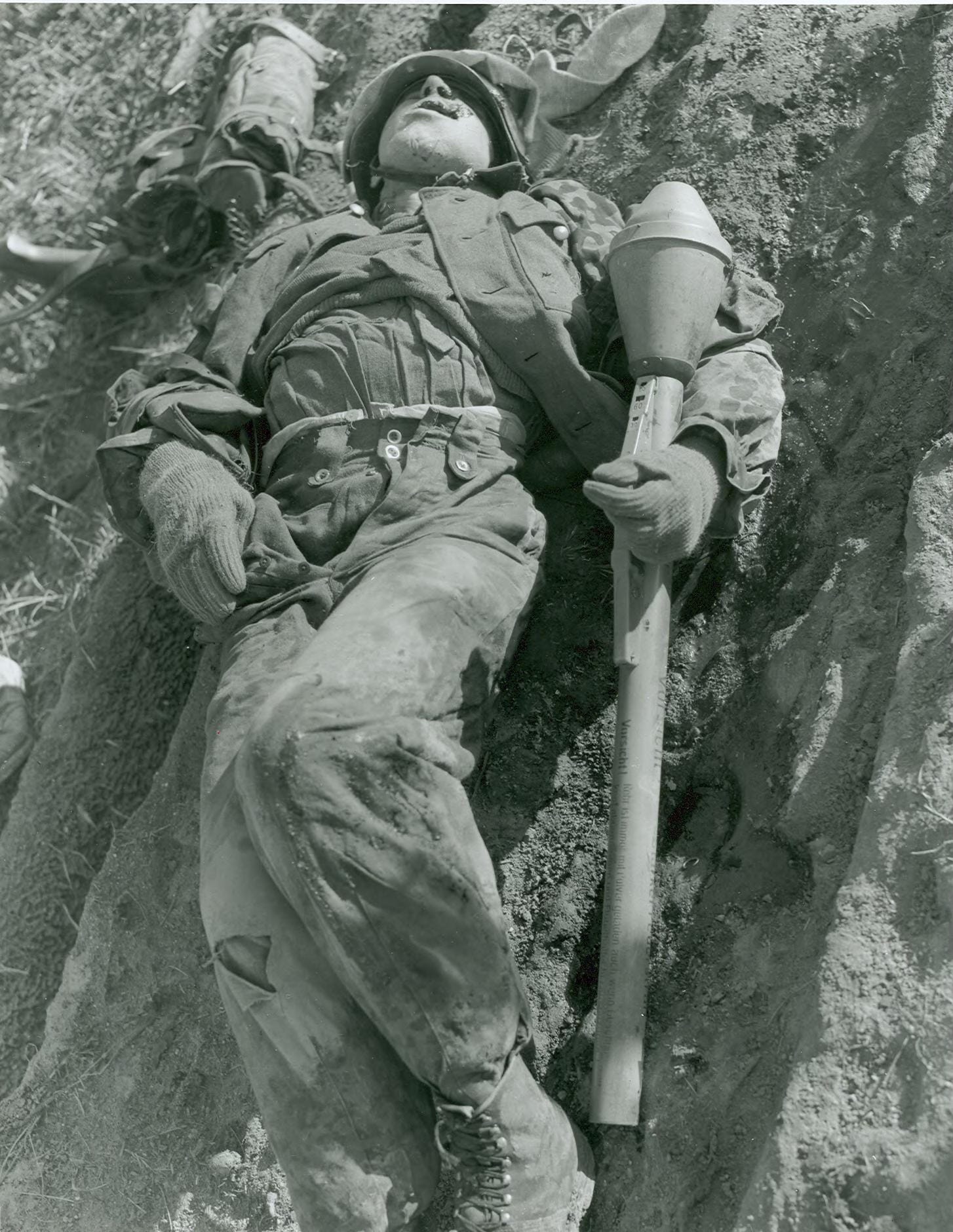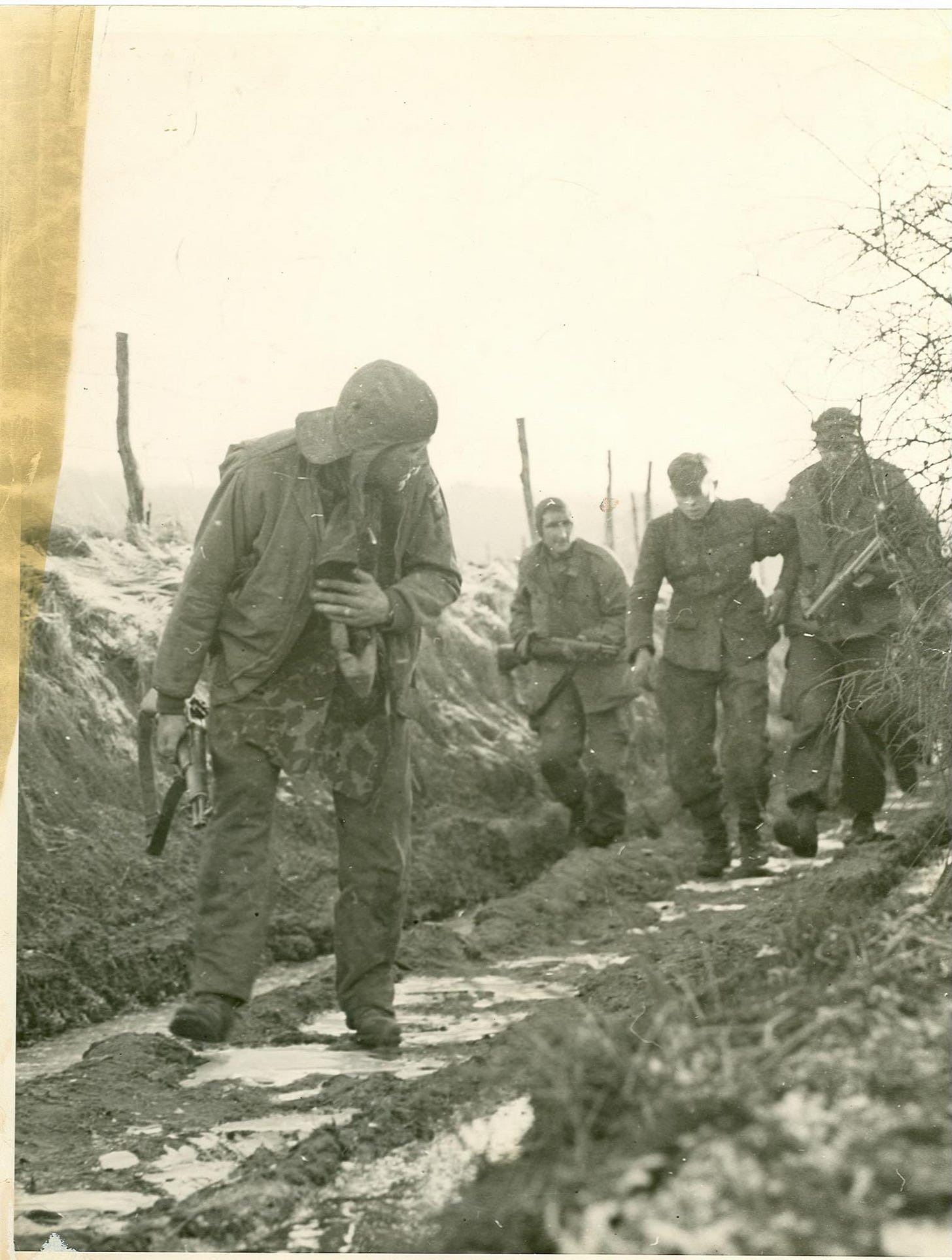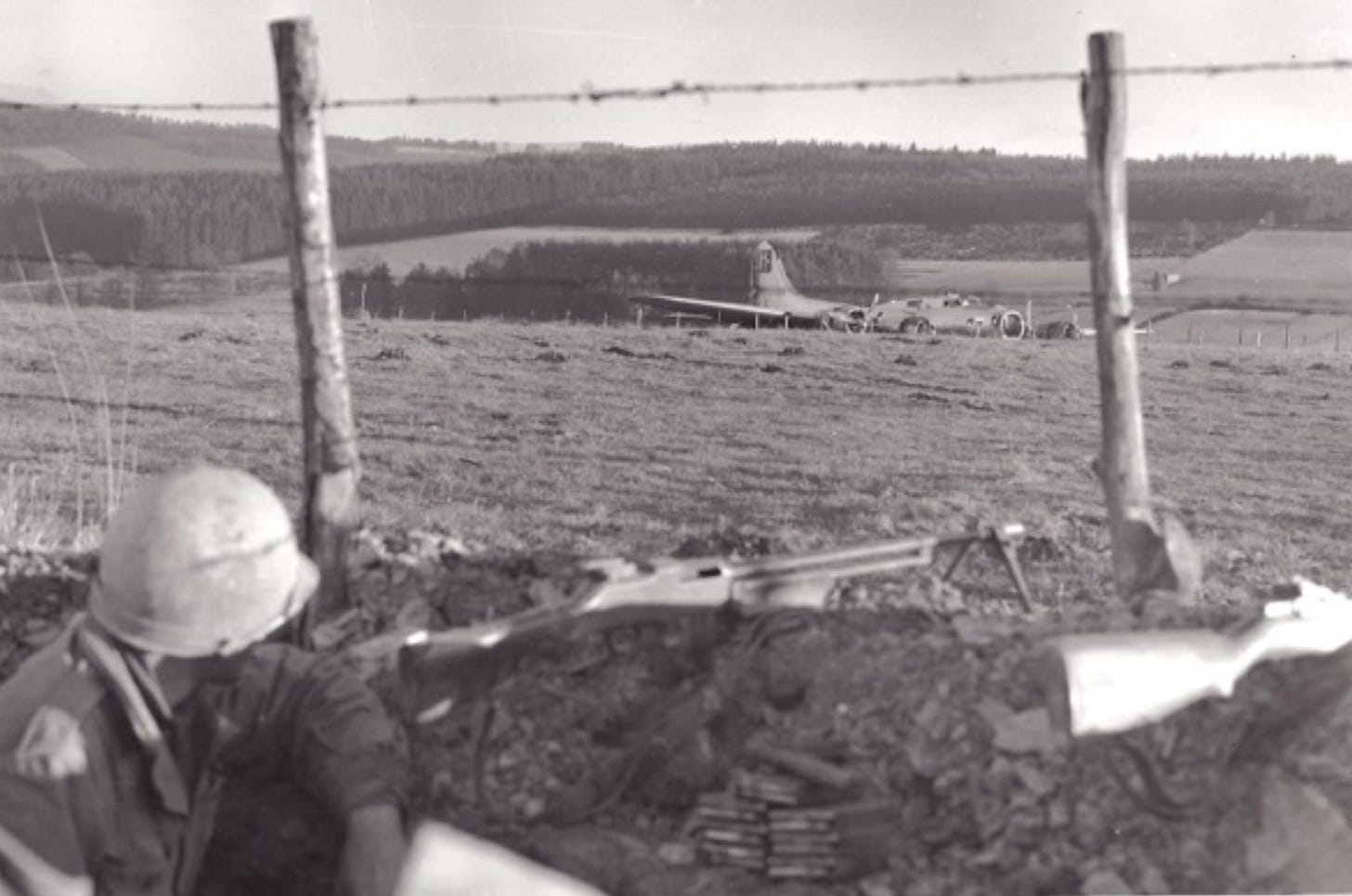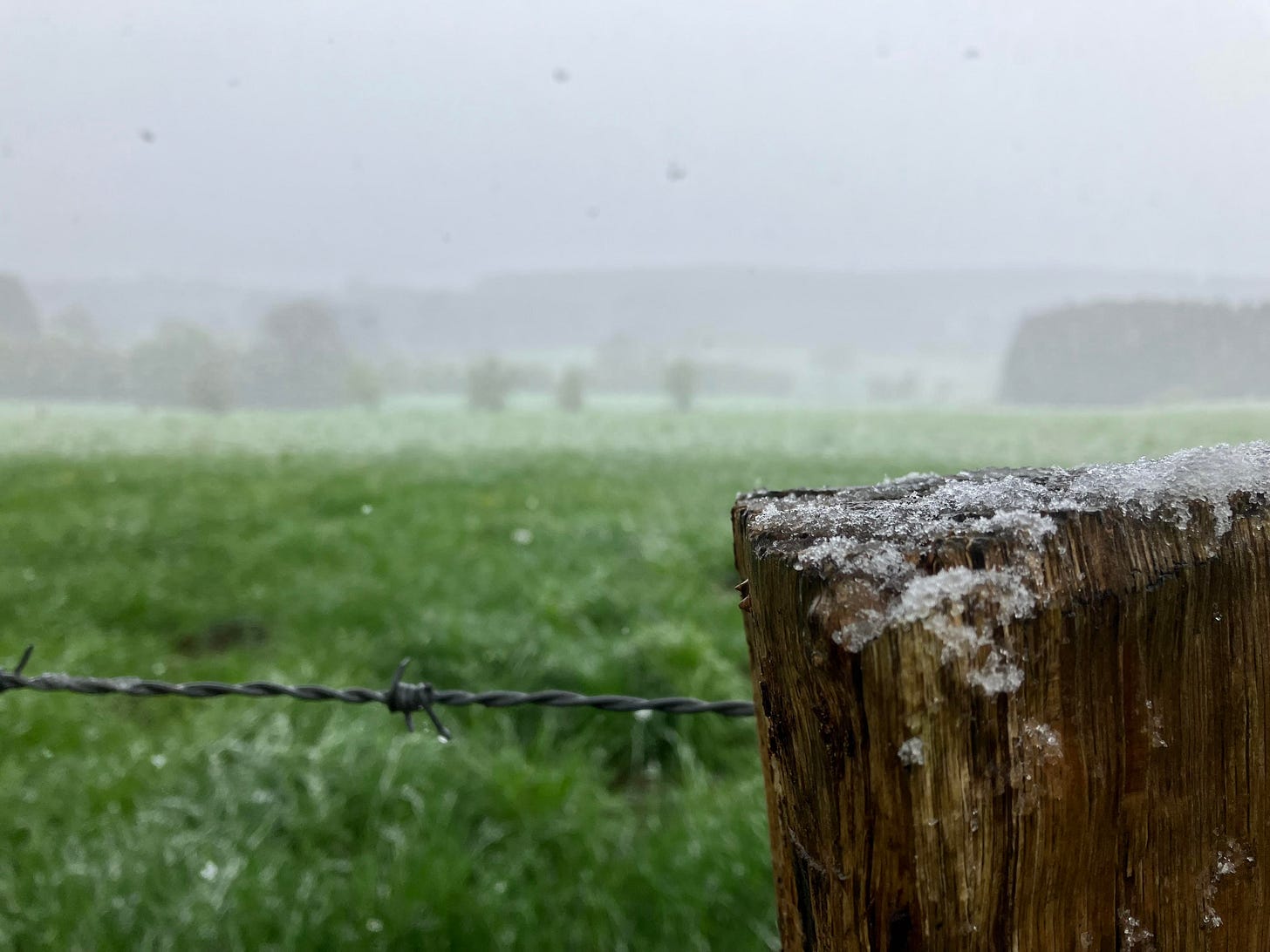Devils in the Hills
A famous photo and how Colonel Tucker consumed the enemy
Welcome to Ridgway’s Notebook, your home for airborne PME. We offer penetrating essays on military history. Through the World War II experiences of General Matthew Ridgway and the 82nd Airborne Division, we illustrate some of the similarities between the questions asked by officers of the 82nd yesterday and today—and dissect how they came to be.
A motor was the only disturbance. Listening to it pierce the stillness transported me to the past. Time is ruthless. Yet that sound, the depression in the dirt beside me, and the pine forest which encased me all proved too much even for a ruthless power. Only the cold and frozen puddles in the dirt seemed to have buckled. The hole, admittedly, was deeper once too. And that sound - coming from the road on the hill opposite the valley - would have alerted the hole’s occupants and been reported from the outpost. There were a couple others nearby that kept watch over the valley in more tenuous times.
They had been reconciled to 2x2x2 depressions. When the motor took its leave, natural perfection was at its peak. The trees, the view, the clean air laden with scent of pine — it was hard to appreciate it was the site of such terror. Here, at the edge of this ridge, overlooking this forested valley, in this hole, the war ended for Sergeant Tague and Private Smith.
Christmas Day, 1944
The company walked down a gentle grade from Bra-sur-Lienne. Set in darkness, they felt their way up a small cart path as earthen banks rose on either side. Shallow dug gun emplacements made effortless earthworks. Leaning against the berm, they peered into the darkness and awaited dawn.
For a German looking down on them, the new American positions left nothing to imagination. Any movement was open to observation, while the German moves were completely concealed in the trees which thicketed the hills into one mass filling the horizon. Had the German advance been faster, the enemy artillery would have been suffocating. An unbroken pasture, sloping gently, unrolled before them to meet the pines. It did not take a Napoleon to know the woods — the high ground — would have to be occupied. It also did not take a Napoleon to know the occupiers would be isolated.
A footpath jogged across the pasture to make the only link between the berm and the forest hills. The pasture’s subtle folds held the footpath so perfectly it was invisible until one stood exactly where it joined the berm, forming a “T.” The dirt banks towered above the three H Company lieutenants contemplating the vulnerability. So concealed was the path that it went unnoticed until they were trooping the line seven hours after sunrise. A German could simply walk from the hill mass and not be detected until he was within the company lines. Which was exactly what happened while the lieutenants were conferring.
A German squad reconnoitering the sunken path exchanged gunfire, and Lieutenant Megellas threw a fragmentation grenade amongst the Germans, causing them to scatter. Lieutenant LaRiviere’s men responded to the scene. Six Germans were killed and men were dispatched to pursue survivors. The vulnerability was closed by shifting H Company right. But it did nothing to restrict German movement. That could only be done on the far side of no-man’s land, in the forest hills. G and H Company dispatched men to outpost the forest. They dug a series of holes to fit two or three men on the crest of a slope. The abruptness and severity of the pitch gave the impression it was the edge of a cliff, and the denseness of the tree cover darkened the place.
As the outpost line formed, the 26th opened with a shelling of Bra, and the Germans spared no shell. The church steeple stood like an aiming stake over Bra’s stables and brick houses. The flanks and turrets of Chateau de Bra stood bold. The German artillery trains had caught up, and were using the hills and trees to effect. No matter how vulnerable the outposts may be, no matter how weak the hold would be, the paratroopers needed to contest the forest. Their Colonel Tucker, reticent but with a vigorous opinion of patrol action, always contested spots the Germans would expend on and made sure they were occupied everywhere but where Tucker’s line was.
By midday, the outposts began to report on German patrols. H Company committed Sergeant Robert Tague’s squad across that broad pasture to establish an eight-man outpost dubbed in messages, “Outpost No. 4.”
Lieutenant Richard LaRiviere was uproarious. At Anzio, he would shoot a German machine gun from a company outpost to confuse the Germans, but usually his men were more confused. He was severe about his business and mean, but every ounce was matched in devotion from his men. Lieutenant LaRiviere and Megellas knew how to lead men, in contrast to other lieutenants with whom the troops had soldiered. They were the most respected, and the best of friends. When you saw one, you saw the other. So it was no great surprise they were together on a quiet afternoon, which the 27th was.
Just before 3 P.M., a G Company outpost up on the hill reported a German platoon working around them and requested 81mm mortars. Fifteen minutes later, a call came from Sergeant Tague’s squad which sent LaRiviere across the pasture “like a man shot out of a cannon.”1 Tague’s squad had one man killed and was pinned down, as was an artillery liaison party which had followed Tague up the day before. LaRiviere gathered a group of men. Lieutenant Megellas waited in the cold.
The pitch of the pasture is noticed in the legs, not the eye. For two hours Megellas’s friend was across it, in the towering trees which appeared as mere twigs from where Megellas was. He waited anxiously. LaRiviere extracted five of his eight troopers in gunfight, and as they withdrew Lieutenant Steuland, leader of the artillery liaison party, pulled the G Company outpost along the ridge so he could drop artillery on the position. He reportedly struck about 100 Germans. G Company attempted to re-establish the position later, and were only able to after a two hour fight amongst the pines.
At 11 P.M., Lieutenant LaRiviere went to look for his missing troopers, and returned with the bodies of Sergeant Tague and Private Clarence Smith.
LaRiviere’s search party found Germans too. They were digging in the woods when LaRiviere’s men shot them up and fled into the night. While geography blunted any large action, the hills consumed attention. Every noise and every movement was reported to a regimental CP whose braintrust went riot. On the 28th Colonel Tucker asked for any indication of Germans on defense; five hours later they asked for any indication of German offensive. The only change in those five hours was the woods. They were alive with action. Two of G Company’s outposts were driven out in the day, and then reestablished. Just like the paratroopers, German command on the hills was weak. The muscular and intricate geography, and the dense trees, demanded a large occupation force. But the muscular and intricate geography flustered supply of that force. It was a battle of skirmishers, outposts, and infiltration. But the paratroopers contesting these hills, despite their great distance from the embankment holding the 3rd Battalion, ensured the Germans were consumed in places other than the main line of resistance. And so, from holes on the precipice, the paratroopers kept watch over the vale best they could, and reported on the sounds of motors. Most of the time, combat is boring like that.
Every day since Christmas, from their embankment, H Company stared up the slope and at the trees. They stared past a crashed B-17 which belly-landed in the pasture long before H Company got there. It now served as Outpost #2 for the battalion - there were six in total. In late afternoon, a strong German patrol manifested out of the copse behind the B-17. The scale of the pasture shrinks men to ants. The range was too great for Lieutenant Megellas’s sub-machine gun, so he grabbed a rifle. The artillery observer worked the copse over with 81mm mortar fire. It was an unprofessional attack, but the German exertion, however mild, spurred an urgent request for 20 rolls of concertina wire.
Now, when they stared at the forest, they stared beyond razor wire strung through the pasture. That morning, it snowed.
Current Day
As I stood amongst the trees, the imagery rolled over me. I envisioned the shadow of Lieutenant McCash skulking about I followed the path of his patrol through the trees, wondering what was felt in his stomach as the same dirt that crunched under his boot, crunched under mine. I walked down a small incline and emerged from the trees, the sun brighter in my eyes. I set out across the pasture with one eye cocked to Bra on the horizon. On the footpath, where the body begins to riot against the distance, I envisioned Lieutenant LaRiviere sprinting past me to rescue his men. In Holland, things look different from 1944 - but here the land is virgin. The tress are the same, Bra has resisted progress.
Finally, I was in the sunken road, the earth gradually rising beside me as I neared the embankment. I passed where Lieutenant Megellas threw his grenade and scattered the German patrol on Christmas; one bloodied grenadier died on the footpath clutching his panzerfaust. A combat photographer captured the body with his camera before the blood had dried. I turned to envision another photo he took, a well regarded photo of a hunched LaRiviere on the path, leading a baby-faced German seized alive in the action.
At the embankment, I stopped again to contemplate the photo I’d studied for so many hours, on the spot as it is today - I envisioned the paratrooper before me, his automatic rifle at the ready, magazines stacked beside him. He stared out toward the B-17 resting in the banking pasture, forest hills in the background. That was before the snow. I imagined how the hill would have looked to him as the snow rolled in on the 29th. And then I didn’t have to wonder.
The sky darkened, and snow fell. It was mid-April. The snow muted the panorama; the hills softened to shadows but the flurry left as fast as it came. It was though the ghosts of the 504 opened the skies just enough so I could see something the way they had seen it. But no matter how great the mirage, now matter how much Bra and its environs had resisted change, it wasn’t what they saw. There were no bodies on the footpath, nor concertina wire polluting the tranquil view. There were no mortars. Bra wasn’t on fire from German phosphorus. My senses weren’t honed sharper than an animal’s. My friends weren’t alone in the forest. It wasn’t the same, only the land was the same.
📚READ OF THE WEEK📚
Megellas, James, All the Way to Berlin, Presidio Press (2003), p. 244. As it is written in All the Way to Berlin, I relied cautiously on Megellas’s account of this four day period. Some items, particularly the sequence/timing of events, are impeached by primary sources such as the battalion message log. In one example, Megellas describes holding the detonator for explosives planted on the B-17 while Germans approached during the assault on the 28th. These explosives and the concertina wire had not yet been placed. Further, as most of Megellas’s fellow veterans who knew him in later life would attest, Megellas developed a tendency to embellish certain events. For example, Megellas describes on the 28th the Germans screaming and yelling, “repeatedly they kept streaming out of the woods,” the paratroopers volley dropping numbers of Germans, and estimating a battalion attacked them. This was little more than a “strong patrol” action, as documented in contemporary reports. Furthermore, the action did not even make it into the combat interview. Furthermore, Megellas’s own note about the Germans being too far for his Thompson to be effective casts doubt on the rest of Megellas’s framing.


